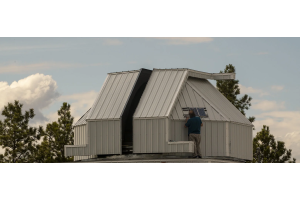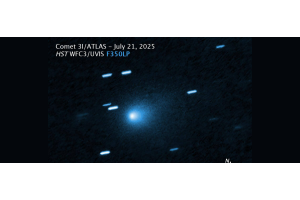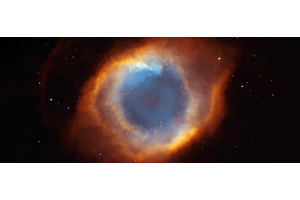Richard Bartlett
- September 01, 2025
Mercury is too close to the Sun to be visible, but Mars clings to the west-southwestern horizon and appears near Spica in Virgo from the 4th to the 21st.
- August 27, 2025
If you already know a little about visual astronomy, you've probably been star hopping without even realizing it! We've gathered our top 10 star hopping targets and all the information you'll need to find them.
- August 06, 2025
The Perseids is a major meteor shower active between July 17th and August 23rd, with its maximum typically occurring on the night of August 12th/13th.
- August 01, 2025
Dim Mars is now only visible for a short time in the evening twilight, and appears low over the western horizon, with a slender crescent Moon beside it on the 26th.
- July 23, 2025
Let’s be honest: few of us like math, but there are a handful of formulae that can be useful to the amateur astronomer and can help you make the most of your equipment.
- July 01, 2025
Mercury will be a relatively easy target for the first half of the month and appears low over the western horizon from around 15 minutes after sunset.
- June 11, 2025
The Southern delta Aquariids is a major meteor shower, active from around July 18th to August 12th, with its maximum typically occurring on the night of July 29th/30th.
- June 01, 2025
Uranus is lost in the Sun’s glare, but if you have an unobstructed view towards the west-northwest, you may be able to see Jupiter very low over the horizon during the first few days of the month.
- May 23, 2025
Astronomy is a fascinating hobby that literally allows you to explore the universe like no other. Maybe you’ve already read some books and magazines or seen some stunning images online. Maybe you’ve been inspired by the unmanned space probes we’ve sent...
- May 01, 2025
Uranus is in conjunction with the Sun on the 17th, and therefore isn’t visible this month. Jupiter glints in the evening twilight but is rapidly losing ground against the Sun.
- April 25, 2025
Whatever the reason, you’re excited to explore the universe and can’t wait to see these amazing sights for yourself. But what’s the reality of the situation? Can you hope to see anything resembling the images you’ve seen? What factors will play a role...
- April 16, 2025
After the Quadrantids in January, the April Lyrid meteor shower (aka, simply the Lyrids) is the next major shower of the year, and typically reaches maximum around April 22nd or 23rd.
- April 10, 2025
Here’s a question that gets asked a lot in astronomy, especially when it comes to telescopes: what’s the most distant object you can see? Maybe you’re thinking of buying a telescope, or maybe you already own one, and you’ve had a friend or neighbor ask...
- April 07, 2025
If you’re new to astronomy, there are a few key terms you’ll need to know. Some, like aperture and focal length, are important, and you might make a point of learning them early on. Other terms won’t initially seem so important, but you might often hear...
- April 01, 2025
Neptune is too close to the Sun to be visible, and Uranus is too low in the evening twilight to make observations worthwhile. However, Jupiter remains telescopically observable for a short time after twilight for the first half of the month






